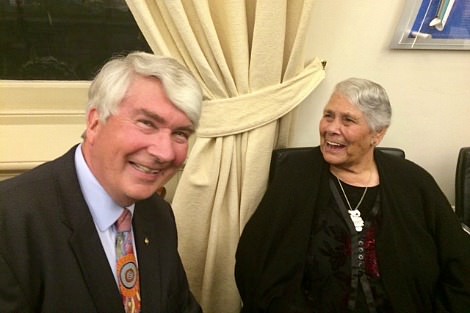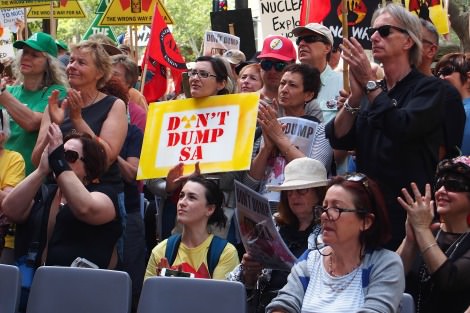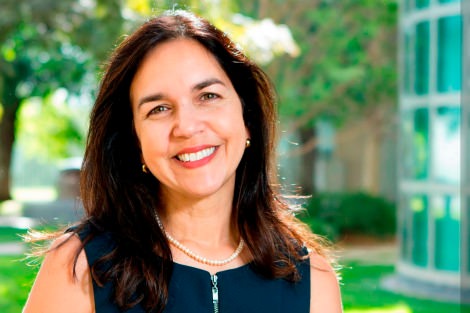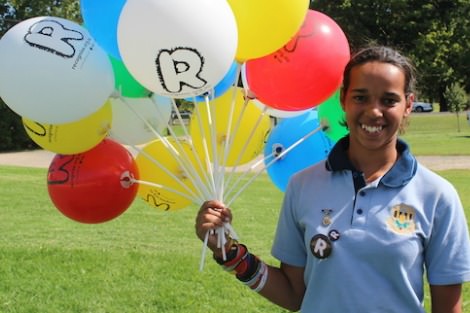Keywords: First Nations Voice To Parliament
-

AUSTRALIA
- Frank Brennan
- 31 May 2017
19 Comments
The consultations conducted in Indigenous communities under the auspices and with the financial support of the Referendum Council have yielded a constant message that Indigenous Australians want substantive constitutional change and not just symbolic or minimalist change. The question is: How much should we attempt to put in the Constitution now, and how much should we place outside the Constitution, or delay for constitutional inclusion until another day?
READ MORE 
-

AUSTRALIA
- Frank Brennan
- 31 May 2017
6 Comments
Indigenous leaders this last week have called for the creation of two new legal entities. They want a First Nations Voice enshrined in the Constitution, and a Makarrata Commission set up by legislation. The Makarrata Commission would supervise agreement making between governments and First Nations and engage in truth telling about history. The envisaged destination is a national Makarrata (or treaty). So the immediate constitutional issue is the creation of the First Nations Voice. There is no point in proceeding with a referendum on a question which fails to win the approval of Indigenous Australia. Neither is there any point in proceeding with a referendum which is unlikely to win the approval of the voting public.
READ MORE
-

ENVIRONMENT
- Michele Madigan
- 13 February 2017
9 Comments
'It will be your artists: the poets, painters, actors, dancers, musicians, orators - they will be the ones to lead the changes.' It was one of the many international invited guests, a Maori woman speaker, who made this prediction to the huge 40,000 strong crowd that marched to Hyde Park, Sydney, on 26 January 1988. In South Australia almost 30 years later, this prophecy continues to unfold in the high-stakes battle for country that surrounds the proposed nuclear waste dump.
READ MORE 
-

ENVIRONMENT
- Frank Brennan
- 28 November 2016
'No matter what the economic, political and legal problems confronted by modern day India, our response can be improved by an application of the key principles and norms developed in the international law of trade and human rights, helping to enunciate the realm of law, regulation and political accountability, enhancing public scrutiny providing the right environment for doing business.' Frank Brennan presents the 25th JRD Tata Oration, Xavier School of Management, Jamshedpur, India, 26 November 2016.
READ MORE
-

AUSTRALIA
- Jarni Blakkarly
- 21 June 2016
11 Comments
Across the political spectrum, Australia's major and minor parties are failing to reflect the multicultural Australia of the 21st century. We have fallen far behind similar nations like Canada, who elected 19 Indian-Canadians alone, and ten indigenous parliamentarians, at their last election. Who we elect to our parliament is not just about the gesture, it is also a reflection of where power lies within our society, and whose voices are given the space to be heard to represent the community.
READ MORE 
-

AUSTRALIA
- Kate Galloway
- 18 May 2016
19 Comments
Newly appointed Senator for Western Australia, Pat Dodson, in his first week on the job, raised the thorny political question of treaty. I see the need for both treaty and constitutional reform, which support each other in promoting justice for Aboriginal and Torres Strait Islander Australians. But the limitations of my understanding are both that I am a lawyer, and that I am not an Indigenous Australian. I need to heed the diverse voices of Indigenous Australia in understanding what is truly at stake.
READ MORE 
-

RELIGION
- Frank Brennan
- 27 November 2015
2 Comments
'The crisis of child sexual abuse in our societies has required that our institutional procedures be more transparent and that we learn from the ways of the world in exercising power openly and justly. This means we have to restructure some of our church arrangements so that power is exercised accountably and transparently. All of us who have positions of influence and power in institutional churches need to be attentive to the voices of those who have suffered within our institutions.' 'Discerning the place for the prophetic voice and pragmatic cooperation of the churches in the great moral questions of the age', address to the Association of Practical Theology in Oceania conference, 26 November 2015.
READ MORE
-

- Frank Brennan
- 18 September 2015
Pope Francis's concerns are not narrowly dogmatic or pedagogical but universally pastoral. He knows that millions of people, including erstwhile Catholics, are now suspicious of or not helped by notions of tradition, authority, ritual and community when it comes to their own spiritual growth which is now more individual and eclectic. He wants to step beyond the Church's perceived lack of authenticity and its moral focus on individual matters, more often than not, sexual. He thinks the world is in a mess particularly with the state of the planet — climate change, loss of biodiversity and water shortages, but also with the oppression of the poor whose life basics are not assured by the operation of the free market, and with the clutter and violence of lives which are cheated the opportunity for interior peace. He is going to great pains to demystify his office. He wants all people of good will to emulate him and to be both joyful and troubled as they wrestle with the probl
READ MORE
-

- Greg O'Kelly
- 01 July 2015
3 Comments
The phrase 'the public square' is peppered throughout Frank Brennan's work. The 1988 film Cinema Paradiso depicts the public square in a Sicilian village over 30 or so years, and its slow and subtle change from a place where human beings gather to laugh, play and discuss. Billboards and garish signs appear and it becomes a car park bereft of its humanity.
READ MORE
-

AUSTRALIA
- Frank Brennan
- 22 September 2014
5 Comments
Considering my indebtedness to the two Aborigines who met [my family's ship arriving in Hervey Bay from Ireland] 151 years ago, I owe it to all my fellow Australians to agitate these issues of law, morality and politics here in Ireland so that back in Australia, the homeland which, in my religious tradition, was known as the Great South Land of the Holy Spirit.
READ MORE
-

AUSTRALIA
- Frank Brennan
- 11 April 2014
1 Comment
'Whether or not we have a bill of rights, much of our human rights jurisprudence remains partial, failing to extend rights equally to all. Once we investigate much of the contemporary discussion about human rights, we find that often the intended recipients of rights do not include all human beings but only those with certain capacities or those who share sufficient common attributes with the decision makers. It is always at the edges that there is real work for human rights discourse to do.' Frank Brennan's Blackfriars Lecture
READ MORE
-

AUSTRALIA
- Frank Brennan
- 11 April 2014
8 Comments
'We should abandon talk of taking Australia off the table. We should also abandon talk of taking the sugar off the table. The collateral damage of that is too great. The best we can do ethically and practically is to put the sugar out of reach while leaving it on the table for those who make it here with a visa or in direct flight from persecution.' Frank Brennan contributes to a Palm Sunday panel at St Michael's Uniting Church, Melbourne.
READ MORE